Hello, everyone I am Chifumi Maeda,
a Japanese female president living in Bangkok.
Thank you, guys, for visiting this
“True comments from Japanese female presidents living in Thailand” blog
I have been talking about Thai permanent residency rights in previous 3 issues and today,
I would like to talk about 4 necessary procedures that
you need to go through after acquiring the Thai permanent residency rights.
See here for the past 3 issues.
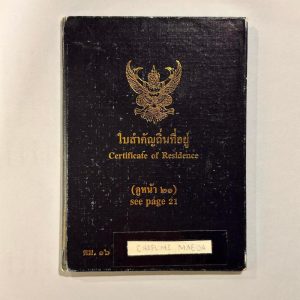
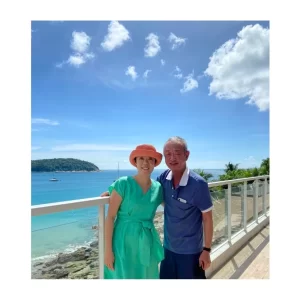
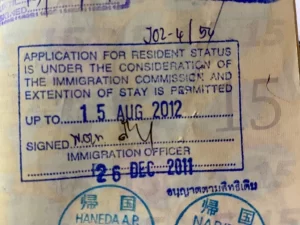
I’ve applied for my permanent residency here in Thailand in July 2011
and I was granted with the status in July 2015.
I was happy because “I thought all the works for acquiring the permanent residency are over”
but on the contrary, there are 4 procedures that I still had to go through,
which I didn’t know about, and I almost missed to do them.
Therefore, I would today like to share with you the 4 procedures that
you need to go through after granted with the permanent residency.
4 procedures required after obtaining Thai permanent residency
It was on 18th June 2015 that I, all of the sudden,
received a letter mentioning that my “permanent residency status was granted”.
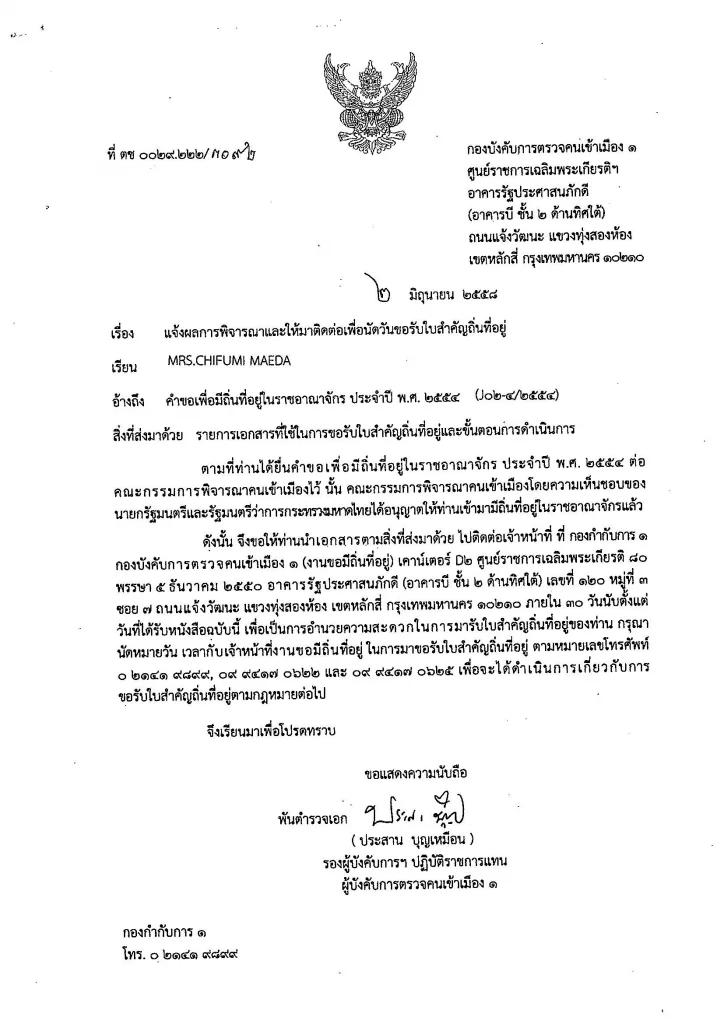
1 month after the reception of the notice letter, you will receive official letter of acceptance.
The date for the arrival of this official letter is unknown but you will receive an order to come again.
So the only thing you can do is to visit the immigration bureau.
Thought that my payment of the fee for processing was the last thing
I had to clear but it wasn’t the case.
I didn’t know that there follows 4 other procedures that I had to go through.
Here are 4 necessary steps that you must follow
after you’ve been granted with the permanent residency.
Step 1. Obtaining Permanent Resident Status at the Immigration Bureau
You will receive a letter notifying you that your permanent residency was accepted
but you will also receive required document and requirements with the letter.
As the procedure at the Immigration Bureau is a month after (you will receive 2nd notice) the reception of the letter,
you will have enough time to prepare the document.
Everything except photo is the same as those you’ve already submitted
for the application of the permanent residence status.
(Will differ depending on the category of application.)
Documents to be submitted are as follows.
I had to submit it as I applied under the Spouse status.
I’ve also submitted at the time of application.
Marriage certificate, in my case, is the family register in Japan.
You can get “Certificate of Family Register Matters (English)” at the Japanese embassy in Thailand,
and then translate it into Thai yourself.
And finally, in order to prove that the family register in Thai is correct,
you will have to go to the Thai Ministry of Foreign Affairs and have it authenticated.
Required for Spousal status application.
(Not required for business applications)
In my case, I submitted my husband Thabiyanbaan.
Submit 12 4 x 6 cm photographs taken within the last 3 months.
Submit the above documents 1 to 5 to the Immigration Bureau,
and after the documents are confirmed, payment to be made.
191,400 baht for business application.
For Family application (spouse, children, parents), 95,700 baht in cash to be paid.
I paid 95,700 baht for my Spouse application.
After this, a Certificate of permanent residence will be issued.
In some cases, it will be issued on a different day.
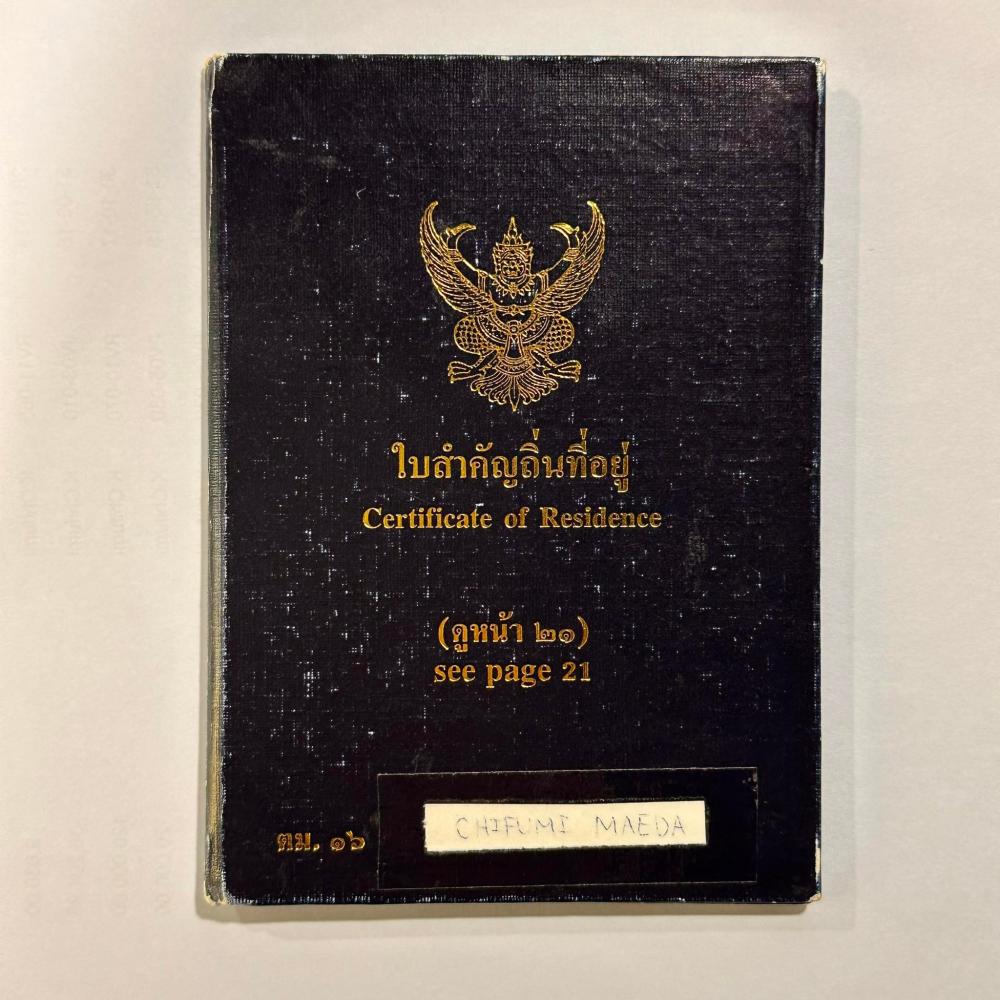
When the permanent residency is issued, a “Letter to the Police Station” will be issued together.
Step 2 starts from here.
Step 2. Alien registration at the police station
After paying the fee for receiving the permanent residency at the immigration office
and received the permanent residency booklet,
you must complete the alien registration at the police station within one week.
Take the letter issued by the Immigration Bureau to the police station.
The police station, it will be the police station that has jurisdiction over the address
where the resident registration (Thabiyanbaan) is.
In my case, I was in Yannawa District in Bangkok,
so I went to the police station that has jurisdiction over Yannawa District (Bang Phong Phan Police Station).
Fingerprints will be taken at the police station.
Sign the papers presented by the police station.
Alien registration booklet will be issued.
Alien registration booklet is valid for 1 year, but they will issue them for up to 5 years.
Mine was published as 1 year + 5 years and was renewed in July 2021.
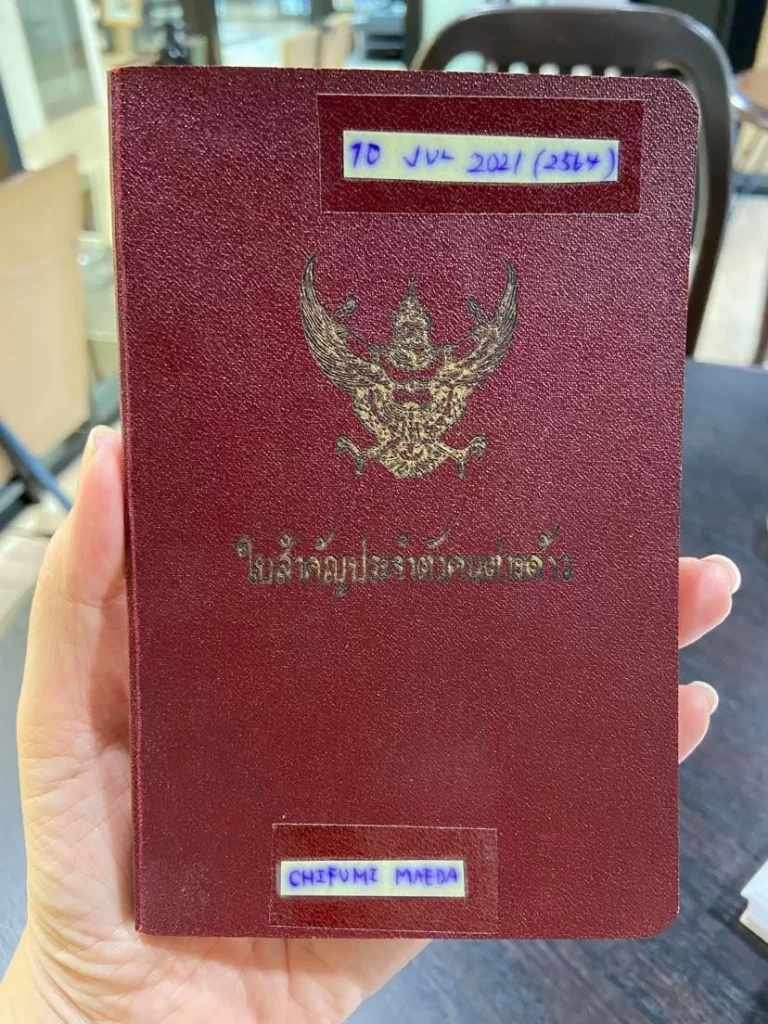
As it will expire on July 10, 2021, I thought it would be better to apply for renewal earlier
so I went to the police station where I registered as an alien.
It was at Bang Phong Phang Police Station at Soi 3 Sathorn Road (commonly known as Suan Phlu Road).
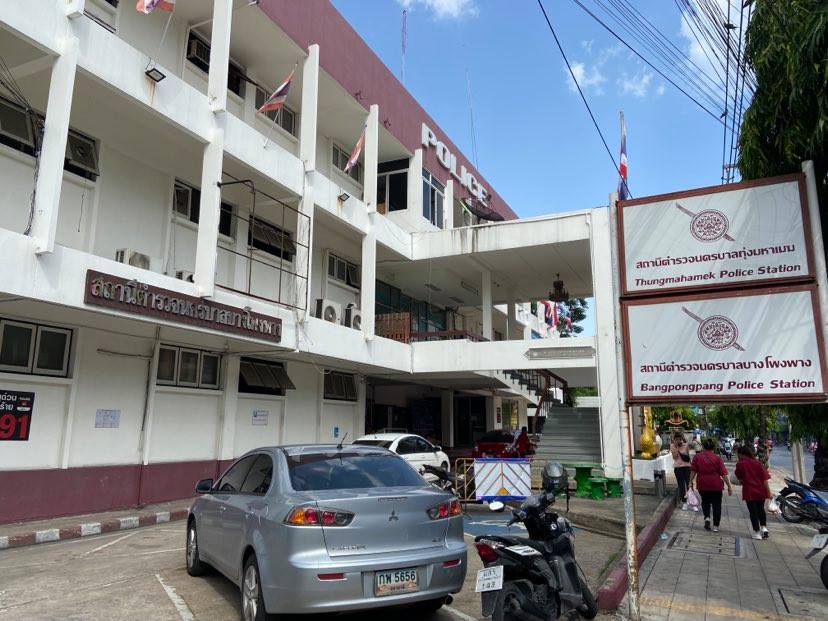
I took my alien registration booklet, permanent residency, and passport.
No other documents necessary.
Filled in the form at the police station which will be done by officer in charge for me.
The alien registration booklet that I took with me was stamped and renewed.
That was it. Finished.
The cost was 800THB.
Step 3. Go to the ward office and register as a resident.
With in 7 days, with my alien registration booklet issued by the police station,
went to the ward office where my husband is registered as a resident (Thabiyanbaan).
In my case it was the Yannawa Ward Office.
Took my husband, who is the owner of Tabiyanbaan, with me to process the procedure.
When the registration is within the Bangkok metropolitan it is easy but,
if you are registered in the other province, you need to go there to do this which is a bit of a hustle.
Necessary documents are as follows.
I did not know that I needed a witness until I went to Yannawa Ward Office.
So I asked my company driver who drove me there to be one.
It is to double check, so I understood,
that if the Thai language I wrote on the document was correct or not.
I thought that it would be finished after going through the procedures of this district office,
but all these documents will be sent to the Ministry of Foreign Affairs of Thailand, checked again,
and returned to the Yannawa Ward office.
You will be told that it will be “1 month later” until you will get it back.
After a month, the three of us (myself, my husband, and the witness = the driver)
went to the Yannawa Ward Office again,
where names were added to the Tabiyanbaan,
the originals were returned, and registration with the Tabiyanbaan was completed.
Rewritten the visa at the same time without waiting for the return of Tabiyanbaan.
Step 4. Rewriting visa (change to Non-Quota Immigrant Visa)
The visa I had previously was a Non-Immigrant B visa (commonly known as a business visa)
for the purpose of working, and it was a visa with company support.
After applied for permanent residency in 2011,
it was stamped as “applying”, and in June 2015,
I obtained permanent residency after completed steps 1 to 3 above,
my the visa category will finally be rewritten.
When you are granted with permanent residency, you will get a Non-Quota Immigrant Visa.
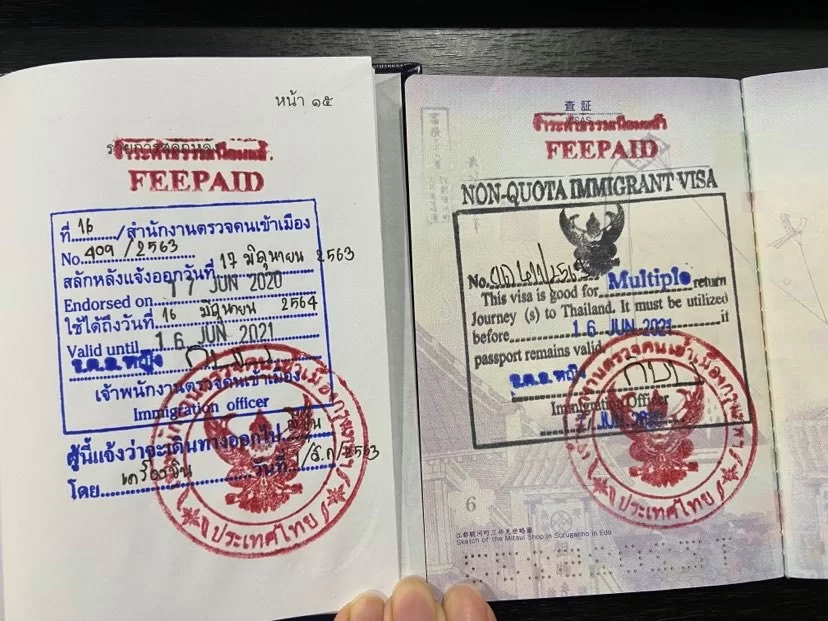
The left is the endorsement of the visa that is stamped on the permanent residence.
The right is the visa stamped in the passport.
These are linked to each other.
When leaving Thailand, if you do not leave the country with the booklet of permanent residency,
it will expire. (Expiration = reapplication for permanent residency)
As shown in the photo above, both permanent residency and passports are stamped
when leaving or entering the country.
I’ve received the following explanation from the Immigration Bureau.
It is valid for 1 year.
Renewal is basically annually. (Only when in abroad from Thailand)
Permanent residency will expire when do not enter Thailand before it expires
when leaving Thailand for a long period of time.
When you are in Thailand, there is no problem if more than a year.
It is not illegal stay as one possesses permanent residency rights.
When leaving Thailand, after completing the procedures, it will be in time.
It is possible to stay in Thailand, so if you do not leave Thailand,
you do not need to go through all the necessary procedures.
The 90-day report imposed on foreigners is not required.
You don’t need the “Immigration Booklet” that you used to fill out when you entered Thailand.
When entering Thailand, you can use the “Thai citizen” lane.
Fingerprint authentication gate available.
So they’ve explained to me.
After completing the Steps 1 to 4 in above,
the application for permanent residence in Thailand,
permission for permanent residence, and acquisition of permanent residence are all completed.
I would be happy if it could help those who are aiming to acquire Thai permanent residency.

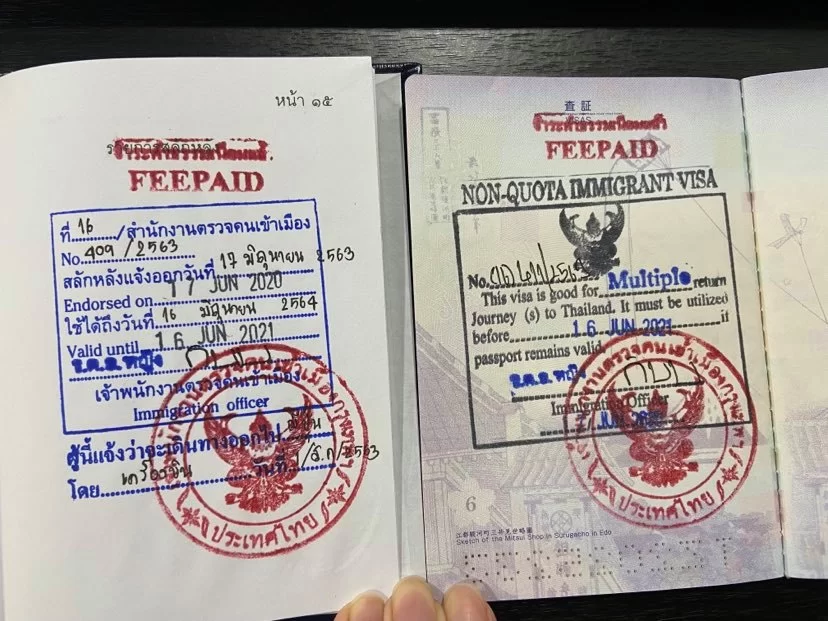
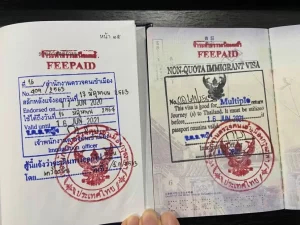
Please leave a comment if you like this article.